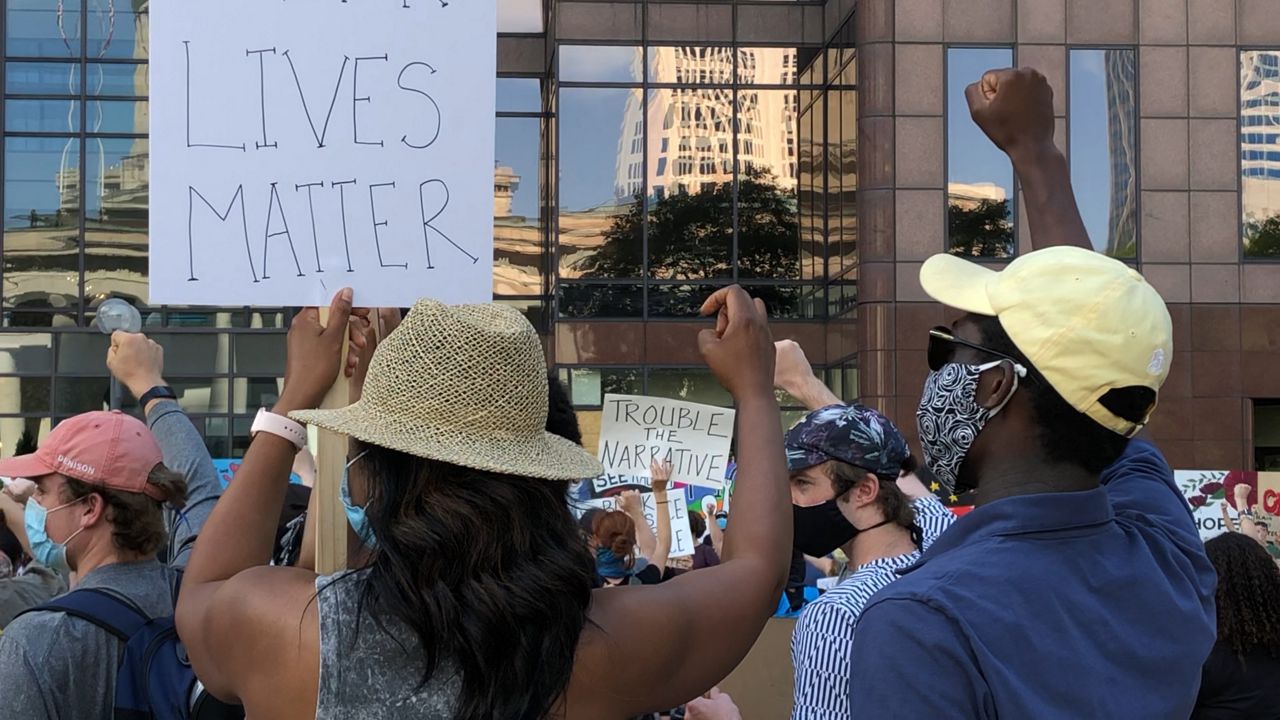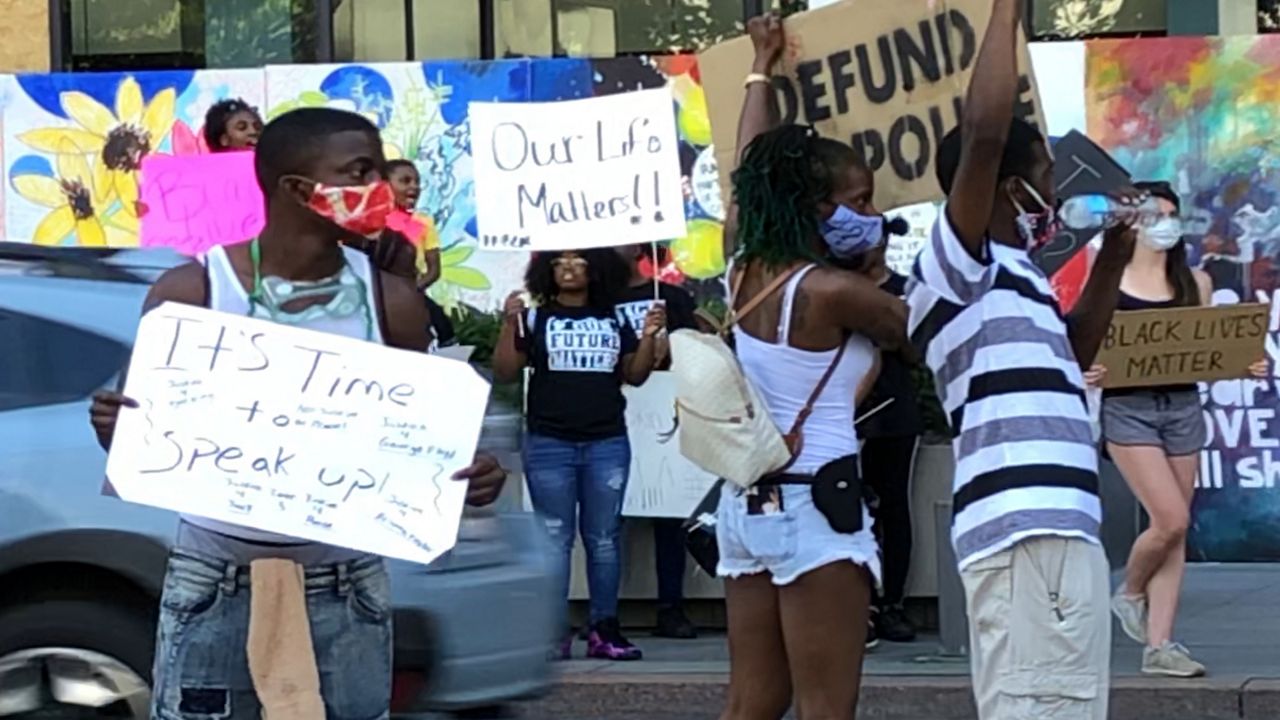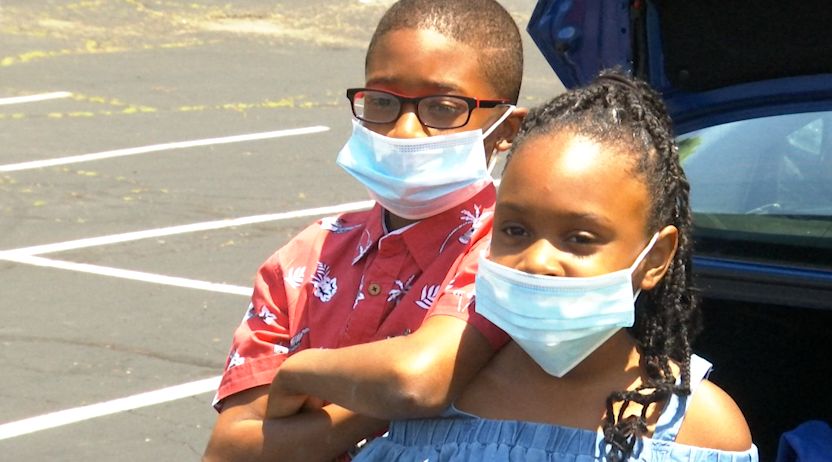Powell, Ohio — Talking to kids these days about racism — the roots of it and protests — isn’t the easiest thing to do for parents, especially when younger kids are involved.
What You Need To Know
- Parents answering questions about why police kill and why people hate black people have been tough
- Conversations about recent protests, explanations on the point that not all police are bad, have become the center of attention
- Providing historical background to help kids have a balanced and informed viewpoint has become important
Five-year-old Braxton enjoyed a day at the park together with his seven-year-old sister Kaylee and mom Bianca in Powell. Hanging from the monkey bars without a care in the world is a far cry from the discussions they’ve had as a family on race and protests lately.
Fielding their questions hasn’t been easy either.
Braxton recently asked his mom, “Why do Black Lives Matter?" and "Why is the police officers kill people?” His sister Kaylee followed suit by asking why people were laying down on the ground and why they did as well, at a protest they attended.
That’s just for starters, as right now they don’t fully understand race and and racism.
“I had to take a long pause when my children asked me that because I wanted to be able to give them the right words without creating a sense of anger or bitterness,” said Bianca Jackson.
As protests over the death of George Floyd and others killed at the hands of police stream across the internet and TV, Jackson says she’s tried to explain it all in the simplest terms possible by using bird analogies.
“You know you have very different birds and one you can see a pelican, you can see a robin, a cardinal, and so they all have differences, but they're a bird.”
Pressed for more answers to questions like why do people hate black people, when her children only understand that there’s one human race, Jackson said, “I explained to them that some people don't want to understand the similarities and the commonalities that we have together because hate is easier to do.” Based on their faith, Jackson went on to explain to them that “The cause is not race, the color of skin, however it's a deeper cause, which is sin.”
Careful with her words, Jackson’s got her work cut out for her, especially with her 16-year-old, who stayed home for the day. That’s because not too long ago, he didn’t believe that racism existed. Jackson says that was due in part to his only reading statistics and certain pieces of information on the internet without having a full background.
“I pride myself on trying to educate my children, so it was baffling, but they're looking at internet, they're going to a predominantly white school where, again, when we look at our educational system, it's not balanced.”
So, she’s spent the last year or so sharing history with him— that’s history of the civil rights movement, how and why they protested and how it compares to today with Black Lives Matter protests. She’s also talked with him about Antifa and white supremacist groups.
“And I started to show him the footage of Antifa, white supremacist groups who were starting riots, and putting BLM and all these different things on a buildings.”
As she helps him to gain a full perspective, Jackson recently took her younger children to a protest to provide explanations for everything going on while trying to keep them from developing a bias and prejudice.
Yet, fear surfaced, leaving five-year-old Braxton saying, “I don’t want me getting killed.” Recognizing the fear, Jackson stopped and took the time to explain that "not all police officers are bad. There are some good and there's some bad.”
Jackson said taking them to the protest and giving explanations for everything was her way of providing balance to it all. While this wasn’t an easy task, she just takes it one day at a time, yet still reminding her kids that God created everyone.








